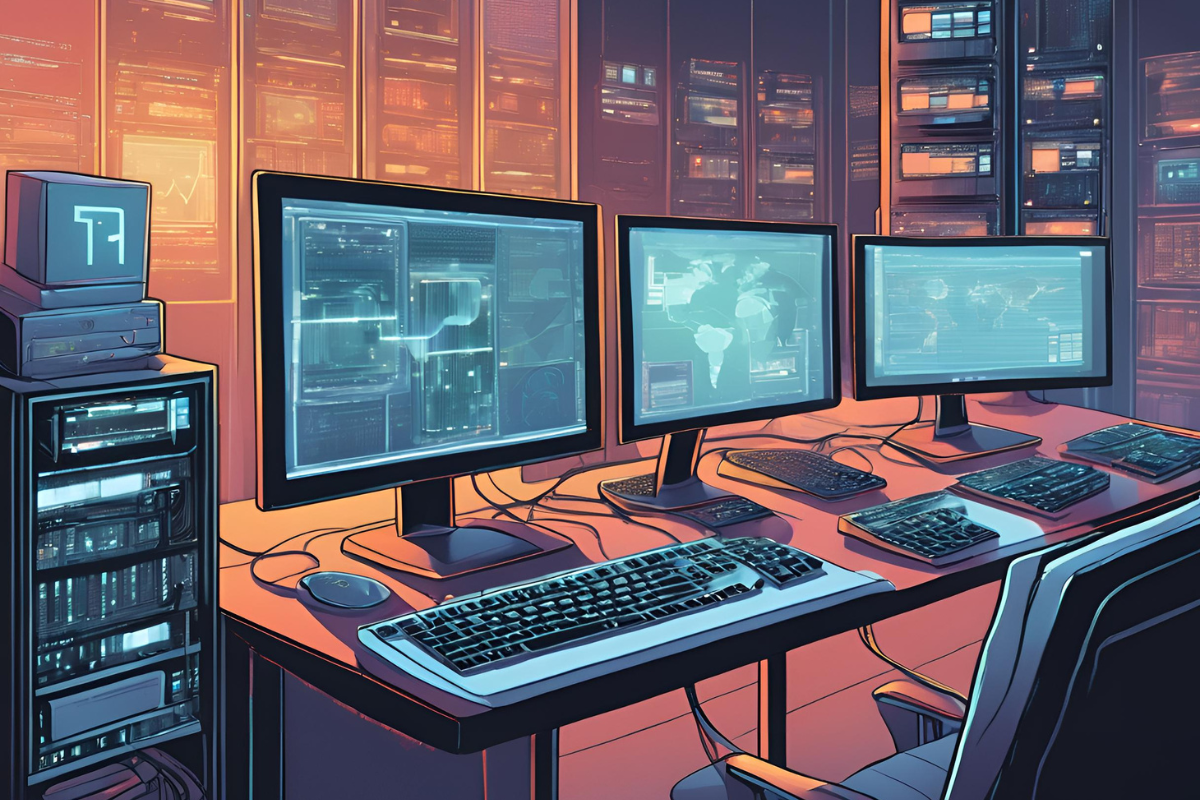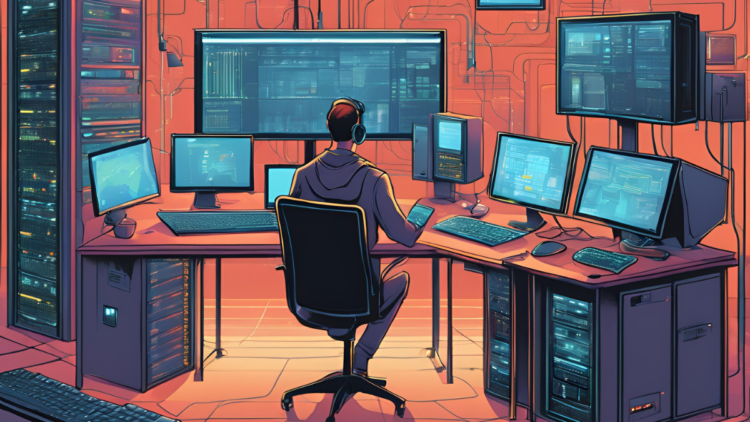Welcome to the realm of Information Technology (IT). You’re in the right place if you’ve ever wondered what IT is and why it’s such a big deal. Let’s tackle and unlock the definition for Information Technology and its core, dissecting its definition, components, and why it matters to you.

Definition for Information Technology, What Exactly is It?
Information Technology, or IT for short, is a comprehensive term that covers all forms of technology used to create, store, exchange, and use information. In simpler terms, IT is about using computers and software to manage information.
Consider the last time you sent an email, streamed a movie, or saved a document to the cloud. These everyday activities are all part of the vast world of IT. It’s a pervasive force in our lives, even when we don’t always recognize it.
Core Components of IT
IT isn’t just about computers. It’s a blend of various components that work together seamlessly. Here are the key elements:
Hardware: These are the physical devices you use, like computers, servers, and routers. Think of hardware as the body’s bones and muscles.
Software: includes all the programs and operating systems that tell the hardware what to do. It’s like the brain giving instructions.
Networks: This component connects different devices, allowing them to communicate. : networks as the nervous system transmitting signals across the body.
Data: The information processed and stored by IT systems. Data is the lifeblood of IT, flowing through hardware, software, and networks.
People: IT professionals who design, implement, and manage these systems. Without skilled individuals, IT systems would be useless.
Why IT Matters to You
You might wonder why IT is essential. Here’s the deal: IT impacts almost every aspect of modern life. Whether you’re a business owner, a student, or someone who enjoys modern technology’s convenience, IT plays a crucial role.
For businesses, IT streamlines operations, enhances communication, and boosts productivity. Imagine running a business without email, customer databases, or online marketing. It would be like going back to the Stone Age.
For individuals, IT provides countless benefits. You can work from home, bond with loved ones across the globe, and access endless information at your fingertips. It makes life more convenient and connected.
Evolution of IT: A Brief History
To truly appreciate IT, looking at how it has evolved is helpful. IT has come a long way from the early days of computing. Here’s a quick journey through time:
Early Days: The concept of information technology began with early computers in the 1940s and 1950s. These machines were massive and primarily used for calculations.
Mainframe Era: In the 1960s and 1970s, mainframe computers dominated. These were powerful but expensive machines used by large organizations.
Personal Computer Revolution: The 1980s saw the rise of personal computers (PCs), making technology accessible to individuals and small businesses.
Internet Boom: The 1990s brought the Internet, transforming how we communicate and access information. It was a game-changer.
Mobile Age: The 2000s introduced smartphones and tablets, putting powerful computers in our pockets.
Cloud and Beyond: Today, cloud computing and artificial intelligence drive the next wave of IT innovation.
The Impact of IT on Business
Understanding IT is essential if you run a business or are involved in one. Here’s how IT can transform your operations:
Enhanced Productivity: Automation of routine tasks frees up time for more important work. Think about automated billing or inventory management systems.
Improved Communication: IT facilitates seamless communication within and outside your organization. Tools like email, instant messaging, and video forums are game-changers.
Data Management: Efficient data storage and retrieval systems ensure you have the correct information when needed. Customer databases, financial records, and supply chain information are all managed by IT systems.
Market Reach: Online marketing and e-commerce platforms allow you to reach a global audience. Social media, SEO, and online advertising are powerful tools in your IT arsenal.
The Role of IT Professionals
Behind every successful IT system is a team of skilled professionals. These are the people who keep the digital world running smoothly. Here are some key roles in the IT field:
System Administrators: Manage and maintain IT systems, ensuring everything runs smoothly.
Network Engineers: These experts design and manage the networks that connect devices and systems.
Software Developers: They create the software applications we rely on daily.
Cybersecurity Specialists: These professionals protect IT systems from threats and ensure data security.
Data Analysts: Interpret and analyze data to help organizations make informed decisions.
The Future of IT: What to Expect
The world of IT is constantly evolving, with new technologies always emerging. Here are a few trends to keep an eye on:
Artificial Intelligence (AI): AI is revolutionizing various industries, from healthcare to finance. Expect smarter systems and more automation.
Internet of Things (IoT): More devices are becoming interconnected, creating a vast network of smart devices that communicate with each other.
Blockchain: This technology is changing how we think about transactions and data security, especially in finance and supply chain management.
Quantum Computing: While still in its fresh stages, quantum computing assures that it can solve complex problems much faster than traditional computers.
How to Stay Ahead in the IT World
Keeping up with the fast-paced IT world can be challenging but essential. Here are a few tips to stay ahead:
Continuous Learning: The IT field is constantly evolving, so keep learning. Online courses, certifications, and staying updated with industry news are crucial.
Networking: Connect with other IT professionals. Join forums, attend conferences, and take part in online communities.
Hands-On Experience: Practical experience is invaluable. Experiment with new technologies, work on personal projects, and apply what you learn.
Stay Curious: Technology is fascinating, and there’s always something new to discover. Stay curious and explore different areas of IT.
Wrapping It Up
The definition for information technology is that it is a vast and dynamic field that touches every part of our lives. Understanding its core components, the role of IT professionals, and its impact on businesses and individuals can help you navigate this digital world more effectively. Stay informed, keep learning, and embrace the endless possibilities that IT offers.
read more: The Dark Side of Sports Betting: Why Sports Betting is Bad































































